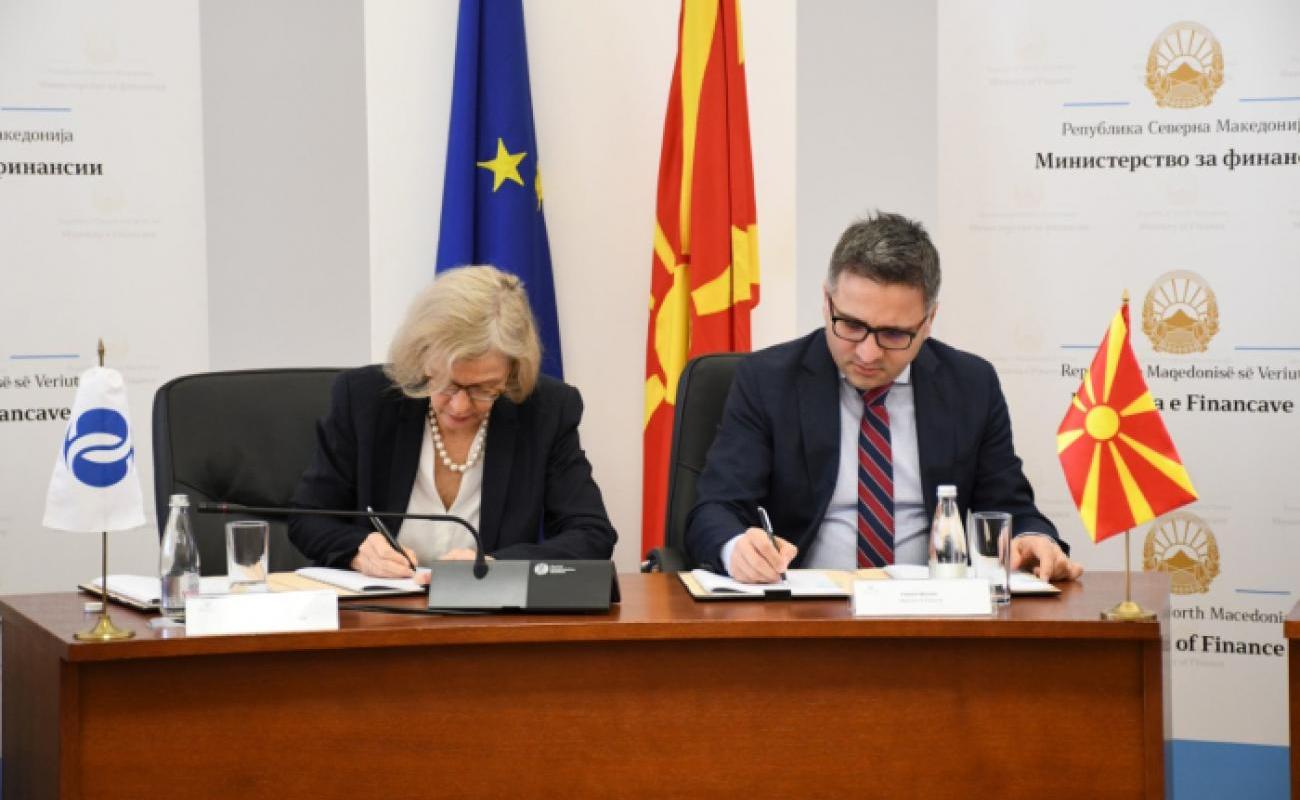EBRD supports North Macedonia’s first country-wide investment in solid waste infrastructure

- Pioneering project in North Macedonia’s solid waste sector introducing EU- compliant solid waste services
- Incentivising increased rates of both waste collection services and recycling
- Donor support from Switzerland, Sweden and Western Balkans Investment Framework
The European Bank for Reconstruction and Development (EBRD) is supporting the modernisation and expansion of North Macedonia’s waste management system. The Bank is extending a €55 million sovereign loan to allow the country to construct new and rehabilitate existing sanitary landfills, build new transfer stations, waste infrastructure for collection and transport, and a recycling centre, and to close two non-engineered dumpsites. The project will be implemented by the Ministry of Environment and Physical Planning.
The investment will support the establishment of three regional integrated waste-management systems in accordance with European Union (EU) standards across five regions (Polog, Southwest, Pelagonija, Vardar and Southeast), providing services for more than one million people. The project will therefore make local dumpsites obsolete and introduce environmentally safe disposal practices in line with EU standards.
Susan Goeransson, EBRD Director for Infrastructure Europe, said: “We are delighted to support the modernisation of North Macedonia’s waste management system with our first investment in this sector. Modernising waste management systems and increasing recycling rates are key to reducing pollution, creating opportunities in the circular economy and moving the country closer to EU environmental standards.”
Fatmir Besimi, Minister of Finance of North Macedonia, said: “This investment is of crucial importance for a greener and sustainable future of North Macedonia. Not only will it reduce pollution significantly, which is the top priority for our citizens, it will serve as the leading example for the introduction and development of new projects in the field of circular economy.
“The Ministry, together with the Ministry of Environment and Physical Planning, is proud to bring about such an important change in the management of solid waste, in line with EU standards, for the first time in the country. This investment, supported by the EBRD as well as grants by SECO and WBIF, secures the prosperous regional development of our country”.
Naser Nuredini, Minister of Environment and Physical Planning, said: “Finally, after 31 years of independence, North Macedonia is seriously investing in building an infrastructure for waste management according to European standards, and this confirms our commitment as a government and ministry to the realisation of the green agenda for the country.
“The new approach [to the] regional waste management system will enable the implementation of better collection, transportation and disposal of waste and the construction of two sanitary landfills in accordance with the national and EU legislation on landfills,” he continued. “We invest for the good of our citizens, but at the same time we create a better, healthier environment and living conditions for the future generations, thanks to the support we receive from the EBRD.”
The project will also benefit from donor-funded support, of which €24 million will take the form of investment grants and €13.1 million will be for technical assistance. Donors include the Swiss State Secretariat for Economic Affairs (SECO), Swedish International Development Cooperation Agency (SIDA) and the Western Balkans Investment Framework (WBIF).
SECO’s financial support of approximately €9 million will be distributed between an investment component amounting to around €6 million for finalising the rehabilitation of the Polog landfill and around €3 million for further development of institutional frameworks at the regional and local level in the solid waste sector. In parallel, SECO-funded assistance will also be extended to the Energy and Water Services Regulatory Commission to expand their competences in the sector, including the preparation of a new tariff methodology.
In addition, the project features a WBIF-funded component on inclusive and socially responsible procurement. This aspect of the project will demonstrate how large infrastructure projects in the solid waste sector can contribute to greater economic inclusion and will ensure the participation of both Roma and women trainees in the programme.
Furthermore, the project is expected to receive support from the WBIF in the amount of up to €22.3 million as well as €2 million of assistance for the development of associated studies in two regions. Project preparation and the forthcoming implementation are supported by SIDA with €1 million of grant funding.
The project is aligned with the Paris Agreement. It will significantly reduce greenhouse gas (GHG) emissions, with an estimated GHG emissions reduction of around 182,000 tonnes of CO2 equivalent per year.
The EBRD is among the leading institutional investors in North Macedonia. To date, it has invested €2.5 billion in 171 projects various sectors of the economy, with a major focus on private-sector development.
